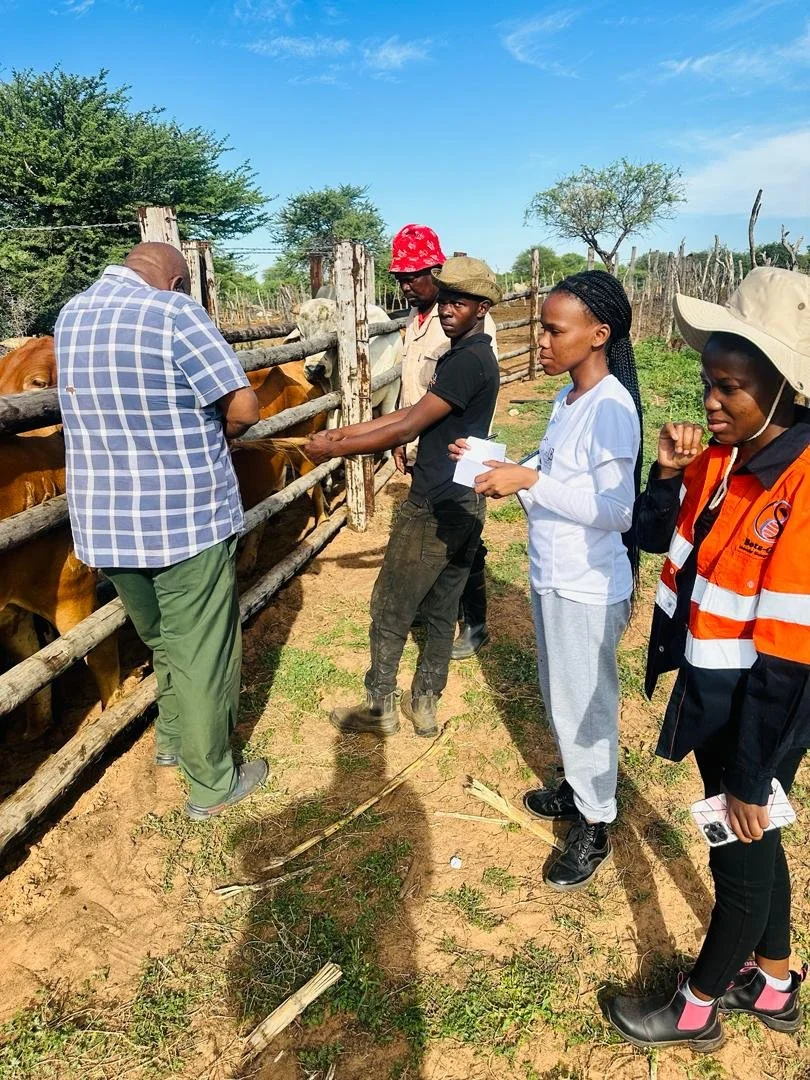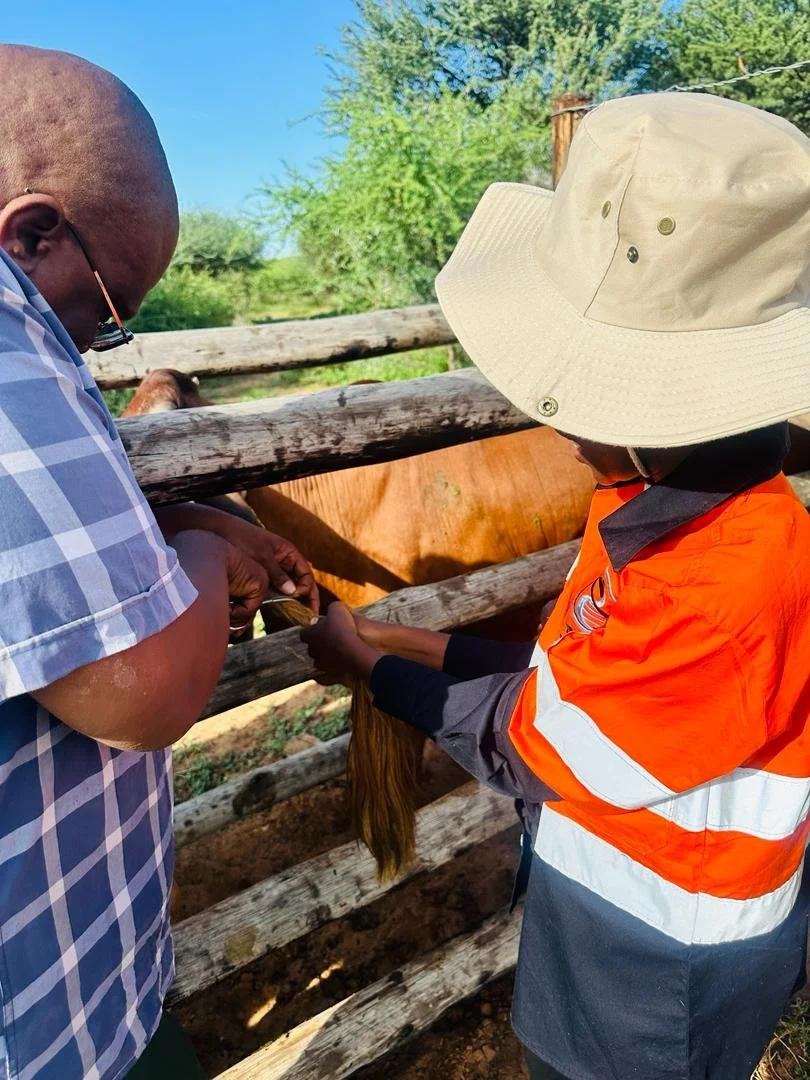
What is Genomic Sequencing?
and what can it do for you?
What is Genomic Sequencing?
Genomic sequencing, also known as genetic sequencing, is a revolutionary technology that involves determining the precise order of nucleotides within an organism's DNA. This process provides invaluable insights into the genetic makeup of organisms, unlocking a wealth of information about their traits, characteristics, and evolutionary history. Genomic sequencing holds immense promise across diverse fields, revolutionizing our understanding of life on Earth and driving innovation in countless applications.
This process has potential applications in agriculture, ecology, healthcare, and beyond.
-
In agriculture, genomic sequencing plays a crucial role in crop improvement and livestock breeding. By analyzing the genetic code of plants and animals, scientists can identify desirable traits such as disease resistance, yield potential, and nutritional content. This knowledge enables breeders to develop more resilient and productive varieties, ultimately contributing to food security and sustainability.
-
In ecology, genomic sequencing helps researchers understand the genetic diversity within populations and species, aiding in conservation efforts and ecosystem management. By studying the DNA of various organisms, scientists can track population dynamics, identify vulnerable species, and design strategies for preserving biodiversity.
-
In healthcare, genomic sequencing is transforming diagnostics, personalized medicine, and disease prevention. By analyzing an individual's genetic makeup, healthcare providers can predict susceptibility to certain diseases, tailor treatments based on genetic profiles, and develop targeted therapies for complex conditions such as cancer.
BotsGen is currently focused on Agricultural and Ecological applications, while developing capabilities in healthcare.
Agricultural Genomic Sequencing: Empowering Botswana's Farmers
In the vast and diverse landscapes of Botswana, agriculture stands as a cornerstone of livelihoods and sustenance. Yet, amidst the challenges of climate variability, soil degradation, and emerging pests and diseases, farmers seek innovative solutions to secure their yields and livelihoods. Enter agricultural genomic sequencing, a powerful tool revolutionizing farming practices worldwide and poised to transform Botswana's agricultural landscape.
Agricultural genomic sequencing is a sophisticated scientific technique that involves analyzing the genetic material (DNA) of crops and livestock. By decoding the genetic makeup of plants and animals, scientists can uncover invaluable insights into their traits, characteristics, and potential. This process enables farmers to make informed decisions regarding breeding strategies, disease management, and crop improvement, ultimately enhancing productivity and sustainability in agriculture.
BotsGen is sequencing cattle to determine and verify genetic factors that can increase viability, disease resistance, and productivity at an early stage. This allows selection for breeding programs at a much faster pace.
What are the benefits?
For farmers in Botswana, the adoption of genomic testing services offers a multitude of compelling benefits.
By embracing genomic testing services, Botswana's farmers can unlock the full potential of their agricultural enterprises, fostering resilience, sustainability, and prosperity for generations to come.
At BotsGen, we're dedicated to supporting Botswana's farming community with state-of-the-art genomic sequencing solutions tailored to local needs. Our team of experts stands ready to empower farmers with actionable insights, driving agricultural innovation and transformation across the nation. Join us in harnessing the power of genomics to cultivate a brighter future for Botswana's agriculture.
-
Diseases pose a significant threat to agricultural productivity, particularly in regions like Botswana with diverse climatic conditions. Genomic testing identifies genetic markers associated with disease resistance, enabling farmers to selectively breed plants and animals with enhanced immunity, reducing reliance on chemical interventions.
-
Consumers increasingly prioritize quality and safety in agricultural products. Genomic testing enables farmers to produce crops and livestock with improved nutritional content, taste, and shelf life, meeting market demands and enhancing competitiveness.
-
In a resource-constrained environment, efficiency is paramount. By leveraging genomic insights, farmers can optimize resource allocation, minimizing inputs such as water, fertilizers, and pesticides, while maximizing yields and minimizing environmental impact.
-
Traditional breeding methods often rely on trial and error, consuming time and resources. Genomic testing allows farmers to pinpoint desirable traits within the genetic code, facilitating targeted breeding programs for enhanced yield, quality, and resilience.
-
Climate change presents unprecedented challenges to farming communities, necessitating adaptation strategies. Genomic sequencing helps identify genetic variations linked to climate resilience, enabling farmers to cultivate crops and breeds better suited to changing environmental conditions.
Ecological Genomic Sequencing: Preserving Biodiversity in Botswana
In the expansive and diverse ecosystems of Botswana, biodiversity stands as a pillar of ecological health and resilience. However, amidst the challenges of habitat fragmentation, climate change, and anthropogenic pressures, conservationists and researchers are pioneering innovative approaches to safeguard the rich tapestry of life in the region. Enter ecological genomic sequencing, a cutting-edge tool at the forefront of conservation efforts, poised to revolutionize our understanding and management of biodiversity in Botswana.
Ecological genomic sequencing involves the comprehensive analysis of the genetic material (DNA) of diverse organisms inhabiting Botswana's ecosystems, from iconic megafauna to microscopic microbes. By deciphering the genetic code of species, scientists gain profound insights into their evolutionary history, population dynamics, and adaptive potential in the face of environmental change. This genomic data serves as a crucial resource for conservation practitioners, empowering them to formulate evidence-based strategies for habitat restoration, species conservation, and ecosystem resilience.
BotsGen is collecting water samples from local wildlife in order to sequence for genetic testing as a part of a metagenomic study to generate data from microbial populations and examine potential impacts on ecological/public health.
What are the benefits?
Genetic sequencing plays a crucial role in advancing our understanding of ecological systems and biodiversity. By analyzing the genetic makeup of various organisms within ecosystems, scientists can unravel intricate relationships, track population dynamics, and assess species diversity. From identifying endangered species to studying microbial communities in soils and oceans, genetic sequencing empowers ecologists to monitor ecosystem health, predict responses to environmental changes, and devise effective conservation strategies. Moreover, it enables the detection of invasive species, aiding in the preservation of native habitats.
Through continuous advancements in sequencing technologies, Botsgen contributes to the conservation and sustainable management of ecosystems, fostering a harmonious coexistence between humans and the natural world.
-
Genetic sequencing allows for the comprehensive assessment of biodiversity within ecosystems by analyzing the genetic makeup of various organisms, including plants, animals, and microbes.
-
By tracking genetic variations within populations over time, scientists can gain insights into population dynamics, including migration patterns, gene flow, and reproductive success.
-
Genetic sequencing helps in the identification and monitoring of endangered species, guiding conservation efforts and population management strategies to prevent extinction.
-
Genetic data guides sustainable resource management practices by informing decisions related to fisheries management, wildlife conservation, and land-use planning.




